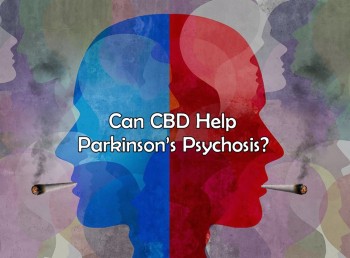
Humans and their brains and minds are intricately molded and typically operate within an ongoing interplay with others. This need for interpersonal connection extends beyond our immediate circles, encompassing not only our families and close friends but also extending to various levels of our social interactions. The Fresh Toast brought up some great thinking points on this subject as well!
While research has suggested that marijuana can offer relief to patients experiencing loneliness and depression, it's crucial to clarify that this doesn't translate to cannabis turning individuals into social butterflies. In fact, a recent study has uncovered quite the opposite effect: regular marijuana use may lead to reduced sociability compared to non-users.
This research, featured in the Journal Nature, was spearheaded by Giovanni Marsicano at NeuroCentre Magendie in Bordeaux, France. Marsicano and his team aimed to deepen our comprehension of cannabinoid receptors and their interactions with marijuana compounds. Prior studies had predominantly located cannabinoid receptors on the cell membrane.
However, in 2012, Marsicano's team made a significant breakthrough, discovering that certain receptors also exist within mitochondria, the cellular powerhouses responsible for providing energy. Bordering the mitochondria's membrane are small, star-shaped cells known as astrocytes. As explained by the study's authors, these astrocytes play a pivotal role in absorbing glucose from the bloodstream to fuel the brain, facilitating neuronal activity and behavioral responses.
With this discovery, Marsicano and his team wondered: if these astrocytes harbor cannabinoid receptors, how do they interact with marijuana?
"We were keen to unravel the significance of these specific cannabinoid receptors in astrocytes and understand the implications for brain function and behavior when exposed to cannabis," said Marsicano, underscoring the significance of astrocytes and energy utilization in brain functioning.
When THC, the psychoactive cannabinoid found in cannabis, was administered to mice, it initiated a series of molecular processes. Among these processes was the glucose metabolism disruption in astrocytes, impairing their ability to convert glucose into energy. Without this added energy supply, scientists observed decreased social interactions among the animals for up to 24 hours following THC administration.
Marsicano emphasized the findings: "Our study is the first to demonstrate that the reduced sociability sometimes associated with cannabis use results from altered glucose metabolism in the brain. It also paves the way for further research to explore therapeutic solutions for mitigating some of the behavioral issues arising from cannabis exposure. Furthermore, it sheds light on the direct impact of astrocyte energy metabolism on behavior."
The Cannabis Paradox: Loneliness Relief vs. Reduced Sociability
In the realm of marijuana use, a paradox has emerged. While cannabis has been suggested to alleviate feelings of loneliness and depression, a groundbreaking study has illuminated a more complex picture. This study, conducted by Giovanni Marsicano and his team at NeuroCentre Magendie in Bordeaux, France, sought to shed light on the intricate relationship between cannabis consumption and social behavior. Contrary to the initial assumptions, their findings unveiled a paradoxical twist: habitual marijuana use might lead to reduced sociability, standing in contrast to the notion that it serves as a social salve.
The findings of the study cast doubt on the widespread belief that marijuana improves social skills. It's significant to note that while marijuana use may provide some people with momentary respite from feelings of isolation or despair, the long-term effects on social connections seem to vary. This paradox highlights the requirement for a more complex comprehension of how cannabis influences our social lives. We must delve further into the processes at work inside the complicated chemistry of the brain when exposed to cannabinoids like THC in order to untangle this intricate web.
Beyond mere conjecture, the implications of this problem could alter how society views cannabis usage, particularly among those who use it for therapeutic or recreational purposes. Everyone should be aware of the subtleties of how marijuana affects social behavior. Still, lawmakers and healthcare experts should be especially aware of these issues as they work to create acceptable marijuana usage policies and recommendations.
Towards Therapeutic Solutions: Addressing Behavioral Issues from Cannabis Exposure
The groundbreaking study led by Giovanni Marsicano and his team, which explored the intricate relationship between cannabis use and social behavior, has significant implications for addressing the behavioral consequences of cannabis exposure. As we confront the paradox of marijuana offering relief from loneliness and depression while potentially reducing sociability, it becomes imperative to chart a path toward therapeutic solutions.
One of this research's most promising aspects is its potential for developing targeted interventions. By identifying that the decline in sociability linked to cannabis use results from altered glucose metabolism in the brain, researchers have opened the door to novel therapeutic avenues. Scientists and medical professionals can now explore strategies to modulate this metabolic process, potentially mitigating the behavioral challenges that arise from cannabis exposure.
This discovery further highlights the significance of individualized approaches to cannabis use. Cannabis does not affect everyone the same way, and variables, including dosage, frequency of use, and individual variations in brain chemistry, may greatly impact how marijuana impacts sociability. Interventions tailored based on these variables may be more effective and assist people in making more educated decisions about their cannabis usage.
In essence, this study serves as a critical building block for future studies aimed at unraveling the complexity of cannabis's behavioral effects and creating specialized treatments for any potential problems. It serves as a reminder that as our knowledge of cannabis expands, we have the chance to improve our methods for using it and, ultimately, the well-being of people who use it for diverse purposes.
Bottom Line
The study led by Giovanni Marsicano has shed light on the complex relationship between chronic marijuana use and sociability, revealing a paradox where cannabis, while offering temporary relief from loneliness and depression, may lead to reduced sociability in the long term. This finding calls for a nuanced understanding of cannabis's impact on social behavior and opens doors to potential therapeutic solutions targeting altered glucose metabolism. It underscores the significance of personalized approaches to cannabis use, acknowledging the role of dosage, frequency, and individual brain chemistry. This research serves as a critical building block, shaping our comprehension of cannabis's behavioral effects and offering valuable insights for policymakers, healthcare professionals, and individuals navigating the multifaceted landscape of cannabis use while striving to safeguard overall well-being.






